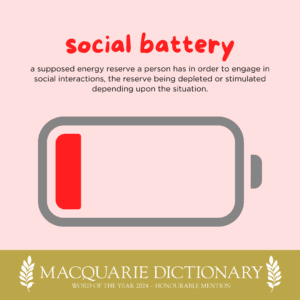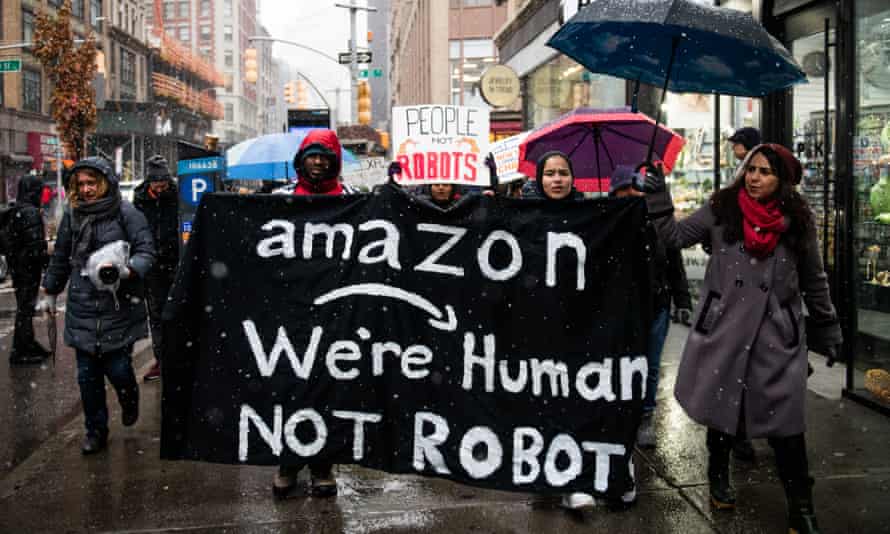This blog is an online publication of words, sounds, pictures and moving images, launched to increase your exposure to the English language and/or supplement your in-person English course with language structures, challenging new readings, TED talks, trailers, quality videos, thought-provoking posts, reliable news, quotations, food for thought and icon links to related websites or to the cloud.
Friday, June 06, 2025
Tuesday, April 29, 2025
Hate Speech Online and Off
B2 Advertising Techniques
Avant garde: the suggestion that using this product puts the user ahead of the times, e.g. a toy manufacturer encourages kids to be the first on the block to have a new toy.
Bandwagon: the suggestion that everybody is using the product and that you should too in order to be part of the group, e.g. a credit card company quotes the number of millions of people who use their card.
Facts and figures: statistics and objective factual information is used to prove the superiority of the product, e.g. a car manufacturer quotes the amount of time it takes their car to get from 0 to 100 kph.
Hidden fears: the suggestion that this product will protect the user from some danger, e.g. a laundry detergent manufacturer suggests that you will be embarrassed when strangers see “ring around the collar” of your shirts or blouses.
Magic ingredients: the suggestion that some almost miraculous discovery makes the product exceptionally effective, e.g. a pharmaceutical manufacturer describes a special coating that makes their pain reliever less irritating to the stomach than a competitor’s.
Patriotism: the suggestion that by purchasing this product you show your love for your country, e.g. a company brags about its product being made in Canada and employing Canadian workers.
Plain folks: the suggestion that the product is a practical product of good value for ordinary people, e.g. a cereal manufacturer shows an ordinary family sitting down to breakfast and enjoying their product.
Snob appeal: suggesting that the use of this product makes the customer part of an elite group with a luxurious and glamorous life style, e.g. a coffee manufacturer shows people dressed in formal gowns and tuxedos drinking their brand at an art gallery.
Transfer: words and ideas with positive connotations are used to suggest that the positive qualities should be associated with the product and the user, e.g. a textile manufacturer wanting people to wear their product to stay cool during the summer shows people wearing fashions made from their cloth at a sunny seaside setting where there is a cool breeze.
Testimonial: a famous personality is used to endorse the product, e.g. a famous basketball player recommends a particular brand of trainers.
Wit and humour: customers are attracted to products that divert the audience by giving viewers a reason to laugh or to be entertained by clever use of visuals or language.
Viral marketing: trying to get the customers themselves to advertise the product by telling all their friends about it on the internet.
Follow-up Exercises:
1. Can you think of one example of some of these techniques in real life? Here are three examples: ING Direct uses the bandwagon technique to get new clients. The Alimentos de Andalucía campaign appeals to consumers’ patriotism. Ferrero Rocher is a textbook case of snob appeal.





Friday, February 21, 2025
Gay Top Athletes: The Ultimate Taboo?_survey
In recent years, some top British, German, Spanish, Australian and American gay sportsmen have come out of the closet.
 Would it be possible for a homosexual athlete, footballer or basketball player to become openly gay and visible in your country? If a professional gay footballer were to come out, would he be respected?
Would it be possible for a homosexual athlete, footballer or basketball player to become openly gay and visible in your country? If a professional gay footballer were to come out, would he be respected?On this subject, the powerful, engaging British short film WONDERKID (Rhys Chapman, 2016), which depicts the inner turmoil of a gay professional footballer as he strives to succeed as his true self in a hyper masculine, straight environment, is a must see.
Please, give this question some thought and post your comment (anonymous or not) in English or in Spanish below.
Related articles and documentaries:
- Can gay footballers ever come out?
- Tarjeta amarilla al armario del fútbol
- Jason Collins on coming out
- El club de fútbol de Madrid donde los jugadores sí salen del armario
- Milestone for Gay Athletes as Rogers Plays for Galaxy
- Comprehensive Poll on Homosexuals in Sports Reveals Bias Against Gay Athletes
- Why Do Gay Men Love the Olympics?
- En el armario del fútbol español
- El armario sellado del fútbol
- En el armario del deporte: por qué "no hay" deportistas gays
- Documental LGTBI. Deporte invisible (Movistar+)
- Documental Fútbol y homofobia (Movistar+)
Thursday, January 30, 2025
Black Mirror_series
Black Mirror (Netflix) is a British science fiction television series written and created by Charlie Brooker and centered around dark and satirical themes that examine modern society, particularly with regard to the unanticipated consequences of new technologies, reminding us that to revere our digital gadgets is to become their pathetic slaves. Episodes are stand-alone works, usually set in an alternative present or in the near future. All genuinely unsettling and thought-provoking.
Sunday, December 15, 2024
Words of the Year 2024
Each year, the Australian Macquarie Dictionary calls together a selected Committee to discuss the new words and definitions that have entered the Macquarie Dictionary over the year. The aim of this is to select one of these to be awarded the Committee’s Choice Word of the Year.
As part of this process, our editors create a longlist of words across 13 categories which over the course of a few hours are whittled down into a shortlist. And from this, a Word of the Year is chosen.
The shortlist is also opened to the public to register what you think the Word of the Year should be. The word with the most votes is awarded the People’s Choice Word of the Year.
You can review the final shortlist here (and for those interested, the longlist is here). Thank you for helping us decide the defining new word for 2024!
Committee Winner:
ENSHITTIFICATION
noun, Colloquial: the gradual deterioration of a service or product brought about by a reduction in the quality of service provided, especially of an online platform, and as a consequence of profit-seeking.
‘A very basic Anglo-Saxon term wrapped in affixes which elevate it to being almost formal; almost respectable. This word captures what many of us feel is happening to the world and to so many aspects of our lives at the moment.’ (The Committee)

Committee Honourable Mentions:
RIGHT TO DISCONNECT
noun: a law which grants employees the right to not work or be contacted about work during non-work hours. Also, RTD.
‘The lines between work and our private lives have become blurred, especially with the growth in working from home during and after COVID. Making the right to disconnect a federal legal reality was a recognition of this.’ (The Committee)
RAWDOGGING
noun, Colloquial: the act of undertaking a long-haul flight with no electronic entertainment, devices or reading material, as film, music, games, laptops, books, etc.
‘A kind of personal endurance test that lends itself to social media exposure, rawdogging caught the public’s attention this year. The word’s meaning was quickly extended to apply to other aspects of life.’ (The Committee)


People’s Choice Winner:
For only the third time, the People’s Choice is the same as the Committee’s Choice! Just nudging out brainrot for the win, the public are in tune with the Committee’s feelings in that "enshittification" captures what many of us feel is happening to the world and to so many aspects of our lives at the moment.
People’s Choice Honourable Mentions:
BRAINROT
noun, Colloquial: 1. content, especially as viewed on a social media platform and for an extended duration, which is considered to be of low quality in terms of intellectual stimulation. 2. the supposed diminished mental capacity caused by the consumption of such content. [from the notion that constant consumption of low-quality online content causes a decline in cognitive ability due to the brain not being stimulated] (The Committee)
SOCIAL BATTERY
noun: a supposed energy reserve someone has for engaging in social interactions, the reserve being depleted or stimulated depending on circumstances and an individual’s personality.
‘An interesting addition to using technological metaphors for explaining cognition. Our experiences emerging from the lockdowns likely making us more aware of the expectations of others in relation to our own wishes and capabilities.’ (The Committee)


Wednesday, June 26, 2024
The 10 Commandments belong in (some) places of worship — not in public schools
By St. Louis Post-Dispatch Editorial Board (TNS), June 24, 2024
Do Americans have the right to not practice religion?
When the question is phrased like that, even most fervent religious believers out there would likely concede that, yes, non-belief (like belief itself) must qualify as a fundamental American right.
Yet that right is under frontal attack, from a religiously driven political movement operating under the premise that if government doesn't promote religion, it is by definition attacking it.
That premise is not only backward but is a slippery slope toward theocracy. The latest slide comes in Louisiana, with a new law requiring that every public school and college post the Ten Commandments in every classroom.
Republican Gov. Jeff Landry signed the law Wednesday. It makes his state the first to test the Constitution's church-state separation in this manner since a U.S. Supreme Court opinion in 1980 that found a Kentucky requirement to display the commandments in public schools violated the establishment clause of the First Amendment.
That clause is unambiguous: Congress (and, by extension, the states) "shall make no law respecting an establishment of religion."
As clear as that seems, it won't necessarily be clear to today's radical-right Supreme Court. The conservative majority in 2022 upheld a public high school football coach's right to pray on the school's football field after games and invite his players to join him. The ruling brushed off the obvious implied pressure the coach created on his players to pray.
The Louisiana law goes beyond merely implied pressure: Every student attending publicly funded schools in the state will literally be a captive audience to a religious doctrine specific to Judeo-Christian faith. The new law even sets minimum dimensions for the commandment displays (11 by 14 inches) and mandates that they must be "in a large, easily readable font."
That slippery slope we mentioned? This is what it looks like.
Defenders of the new law maintain that the commandments aren't solely a religious statement but a historical document of cultural principles ingrained in the laws of America and elsewhere over the ages.
That may apply to some of the commandments — the prohibitions on murder, theft and false witness, for example.
But what is an adherent to polytheist religions like Hinduism or Buddhism supposed to do with "Thou shalt have no other gods before me"? And what is an atheist supposed to do with any of it?
In fact, even many of the Judeo-Christian faithful may discover that with this law, Louisiana officially relegates their beliefs to secondary status as well. The law specifies wording that religious scholars say generally represents a Protestant version of the commandments — a version distinct from those recognized by Catholics and Jews.
What is it that business conservatives always say about the free market? The government isn't supposed to pick winners and losers? Shouldn't something as complex and personal as faith have at least that level of insulation from government?
Allowing the religious beliefs of a few to dictate public policy for everyone creates dangers that go beyond the merely philosophical.
There's some irony in the fact that Louisiana's new law is fervently supported by the same conservative movement that has turned school board meetings into culture-war battlefields over books and curriculum.
They argue that teaching racial history or gender issues in schools strays from legitimate education and into the realm of cultural indoctrination. But it's OK to force religious belief (and, in fact, one specific version of religious belief) into every classroom?
If this law stands, every public school student in Louisiana will face what amounts to a daily religious sermon — whether they (or their parents) like it or not.
Wednesday, October 04, 2023
Thursday, January 26, 2023
Palabras para un cambio educativo real
El profesor Nino Cervera Martín, desde una isla canaria para el mundo.
Saturday, January 07, 2023
Amazon is a disaster for workers
Amazon is a disaster for workers. Film Nomadland glosses over that.

The new movie Nomadland may have received six nominations for the Academy Awards this year, but it’s also been met with its fair share of controversy. Telling the story of Fern (played by Frances McDormand), a woman who lives an itinerant life, moving from state to state to follow work, sleeping in her van modified into cramped living quarters, the depiction is, some critics say, too cheery. She lives this life because she chooses to, hitting the road after a tragedy, not because she has to. And the work she does supports her lifestyle and she wants for nothing more.
Nomadland shows Fern working in an Amazon warehouse; the makers of the film received permission from Amazon to film on location. The work that Fern does looks tedious and difficult, but let’s just say there are no labor violations shown on screen. Fern does this menial labor to remain true to herself and the life she wants to lead, and Amazon essentially funds her authenticity.
Meanwhile, in the real world, Amazon is putting cameras in the trucks of its delivery drivers, monitors on the bodies of its warehouse workers, and security cameras inside and outside its facilities. It creates heat maps to detect if too many employees are gathering in the same place at the same time to discourage both fraternization and discussions of forming a union. And the company touts all of this, as effective methods for boosting productivity and profit margins.
The horrors of working at Amazon warehouse facilities have been circulating for some time. Employees, not granted long enough bathroom breaks that allow them to travel all the way from their position to the facilities and back, have reported peeing in bottles. They have said they are sometimes forced to stand in line after work for security screenings to make sure no one is smuggling out product, time they are not compensated for. Warehouses are often not temperature controlled, meaning employees have to work in sweltering conditions in the summer and in cold temperatures in the winter.
But the increased surveillance is a new level of indignity. The pandemic has increased the volume of packages being handled by Amazon delivery drivers, in some regions doubling their workload. Workers have complained about having to work at backbreaking speeds to meet their quotas, about injuries and exhaustion. These workers are often contractors, meaning they are working without the protections or benefits that come with full-time employment.
Instead of giving their overloaded workers a pay raise to match the increased labor, or hiring them full-time so they can receive health insurance to cover their repetitive strain injuries, Amazon has responded by putting cameras in the delivery vans to carefully monitor performance. The cameras attach to the ceiling of the van, with one lens pointed directly at the driver’s face. Now if a driver cuts corners in order to meet their impossible quotas for the day – running a stop sign here, peeing in a bottle to avoid having to stop to find a public restroom there – it will be reported immediately to Amazon headquarters. Even things like U-turns, braking too quickly, and other minor traffic issues are automatically reported without notifying the driver. Human beings are being expected to reach the performance levels of machines, and to go without basic human needs like food, bathroom breaks, sleep and leisure time.
Amazon trots out the usual answers when questioned about the increased monitoring: they are concerned with safety and fulfillment. They have delivery promises to keep, as their Prime customers expect their orders to magically appear on their doorsteps the day after, or even hours later, their orders are made. It’s about customer satisfaction and keeping the streets safe. (It’s not clear how Amazon’s failed plan to spy on its employees’ social media presence, including communications and posts made off hours, was about customer satisfaction, but I’m sure they will figure out a way to explain it eventually.)
We can debate whether Nomadland deserves the criticism it is receiving – it is, after all, a fictional film and not a documentary about the labor conditions of the working class. But it’s undeniably useful to Amazon right now to have a prestigious film providing cover for its abuses. Then again, the working conditions of its employees and contract workers have been well-known and reported for years, but the company keeps increasing its market share. Amazon doubled its profit during the pandemic, and the gap in pay between its executives and its warehouse workers continues to grow. Also the company doesn’t pay taxes. Amazon’s founder and chief executive, Jeff Bezos, saw his personal net worth grow a staggering $75bn in 2020.
Amazon can get away with it because there is an underclass of insecure workers who rely on even this underpaid, dangerous work to make ends meet. It’s not the narrative failures of one film, or even the moral failings of one CEO, that got us here; it’s the inevitable result of a society which wants to squeeze every dollar and every hour of productivity out of human beings to benefit the few. Each worker who gets fired because they ran one too many stop signs can easily be replaced by another desperate soul.
























